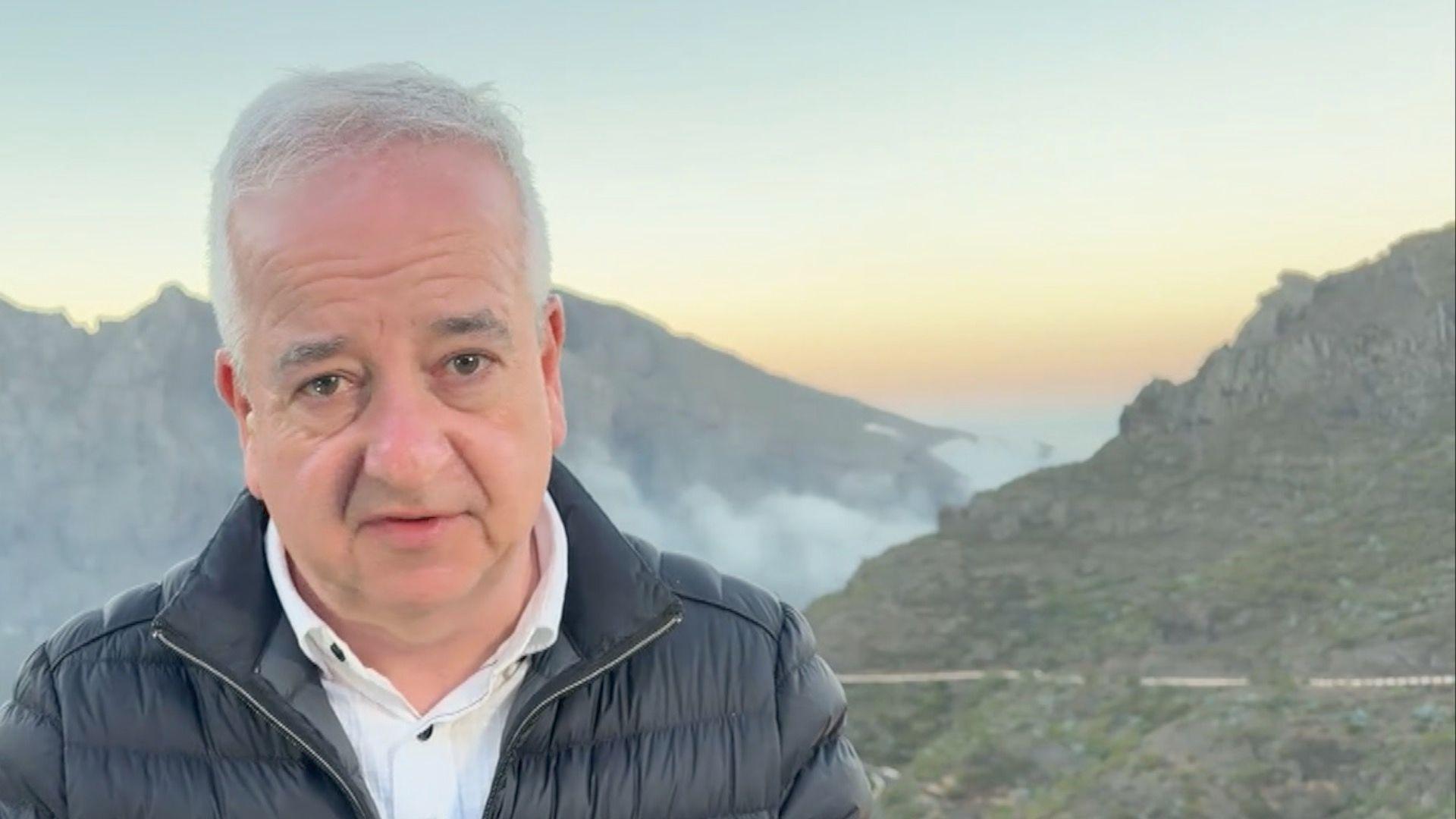Jay Slater search scoured caves, ravines and cliffs
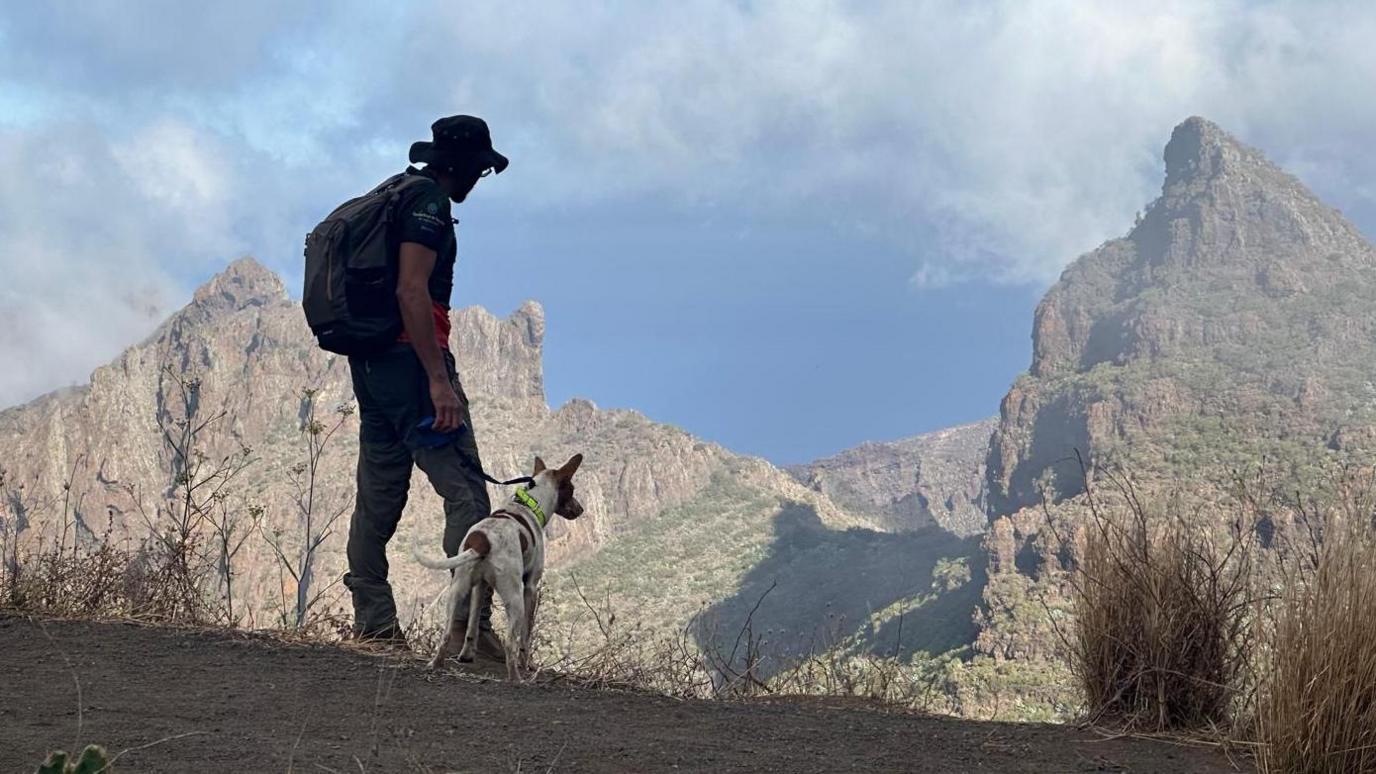
- Published
“Why would anybody come to Masca?” asks Wayne Bennett, 39, from Wiltshire.
He’s just arrived in Tenerife with two friends on a pre-booked holiday, and Masca was first on a list of recommended places to go by his car rental agent.
To call it a village is generous. At most, a dozen houses and villas are dwarfed on all sides by towering volcanic cliffs. The road through barely lets two cars pass.
To get there, it’s a vomit-inducing rollercoaster of a road that at times seems like you’re driving through the sky.
It attracts view-seekers, hardcore hikers and nature lovers, mostly from Germany and mainland Spain. It’s miles away, figuratively and literally, from the typical Tenerife party scene.
“There’s just nothing, is there?” says Wayne, looking slightly disappointed.
What Wayne and his friends didn’t know, until we told them, was that this was where 19-year-old Jay Slater spent the night before he went missing.
They’d all heard of Jay’s story, but were surprised to find themselves just across from the rented holiday flat he was last seen leaving nearly two weeks earlier.
Police on Tenerife said on Sunday that the search for Jay has been called off.
On the morning on 17 June, Jay was seen walking up the steep mountain road away from the village. His friend, Lucy Mae Law, said that he called her and told her he had no water, was on 1% battery and that he was lost.
His phone’s location pinged somewhere near a mobile phone mast at the crest of the valley. And then Jay vanished, without a trace.
The 'massive search' that wasn’t
On Saturday, almost two weeks on from Jay's disappearance - and on what turned out to be the final day of the official efforts to find him - authorities organised a public search to try to comb through the area.
Emergency workers had been combing the Masca valley and other nearby ravines, caves and paths daily, with no luck.
They hoped that the call for a “massive search” would bring experienced amateur climbers and hikers to the area to comb through the undergrowth, looking for any clues as to what happened to Jay.
On the day, fewer than a dozen volunteers turned up.
All in all, including the professionals, 30 people in total were tasked with combing a massive and difficult-to-reach search area. For most of the morning, there were more journalists than rescue workers at the rendezvous point.
Police forces around the world act in different ways when it comes to dealing with the media, and here in Tenerife the policy appeared to be not to comment on an active investigation.
There were no appeals for help, no posters and no interviews. It was left to Jay Slater’s father and elder brother to put up posters in the town of Santiago del Teide at the foot of the national park.
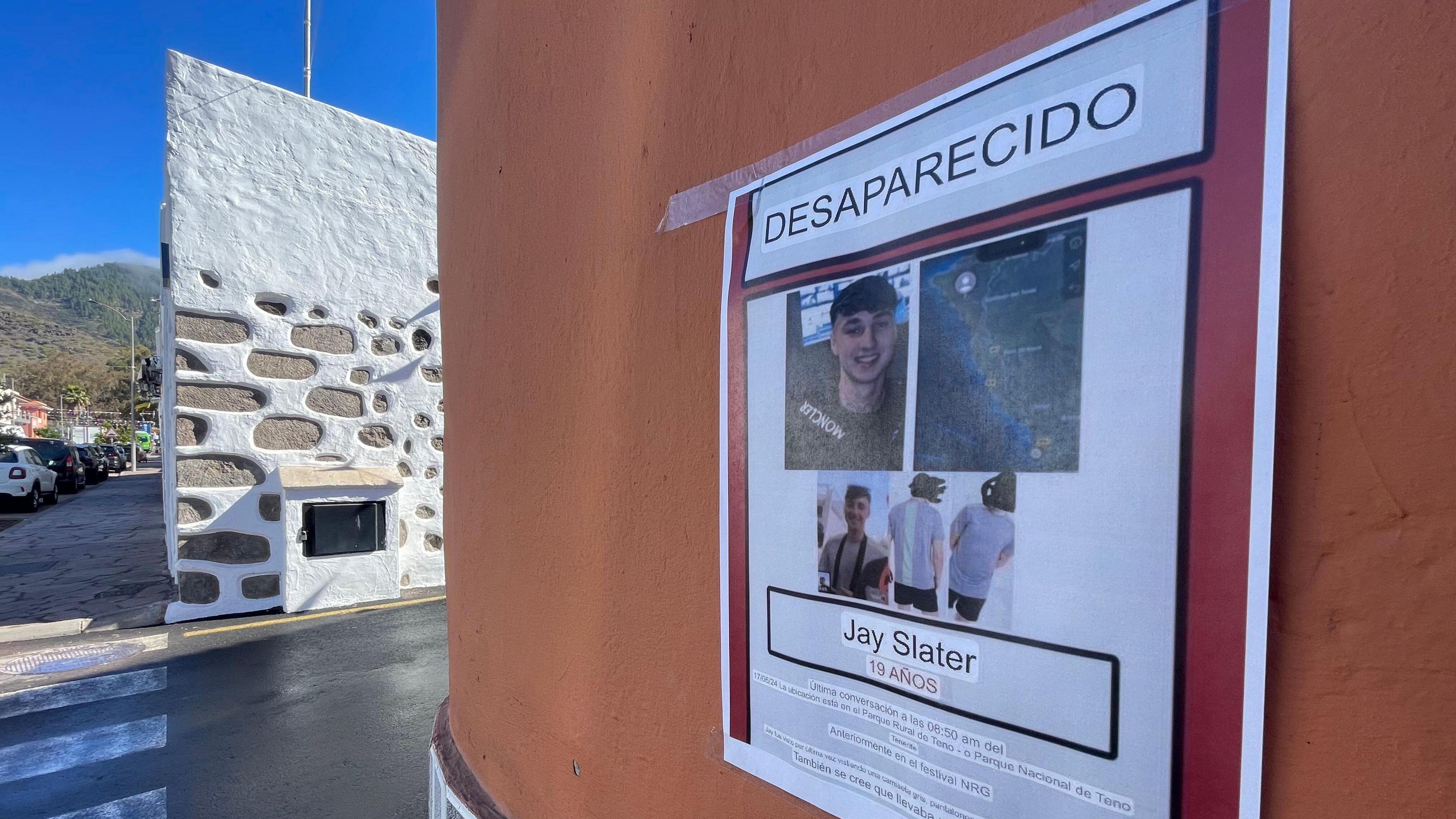
Then a - partial - change of heart. Just before Saturday’s search began, Brigadier Cipriani Martin of Spain’s Guardia Civil patiently gave answers to British and local journalists explaining what stage the investigation was at.
Because of that two-week window without information, many believe a vacuum was created which was, in turn, filled by conjecture and theories of conspiracy.
Wild rumours spread on TikTok, Reddit and Facebook led to real life harassment and trolling. Jay’s family said that fake messages on social media were stopping them from getting real information that could actually help their search.
One person they did thank was climber and TikTok personality Paul Arnott, who landed on the island a week or so after Jay’s disappearance and has been helping with the search.
We saw him on the morning of the open search, looking tired and frustrated.
“I’ve been checking loads of different areas” he said. “On some days I’ve been with police and mountain rescue. Those guys have told me where to search.”
He’s also been relentlessly posting on TikTok - dozens of videos a day - to his 280,000 followers. It’s a staggering number, and almost half of them have discovered him since he started posting about Jay Slater.
We asked him what he would say to those who said he was doing this to promote his own profile.
“I do social media anyway," he said. "I film mountain stuff. His family wanted help and exposure, and that’s what I do.”
Lancashire Police said in an earlier statement that it had made an offer of support to Spain's Civil Guard but had been told the agency was "satisfied that they have the resources they need".
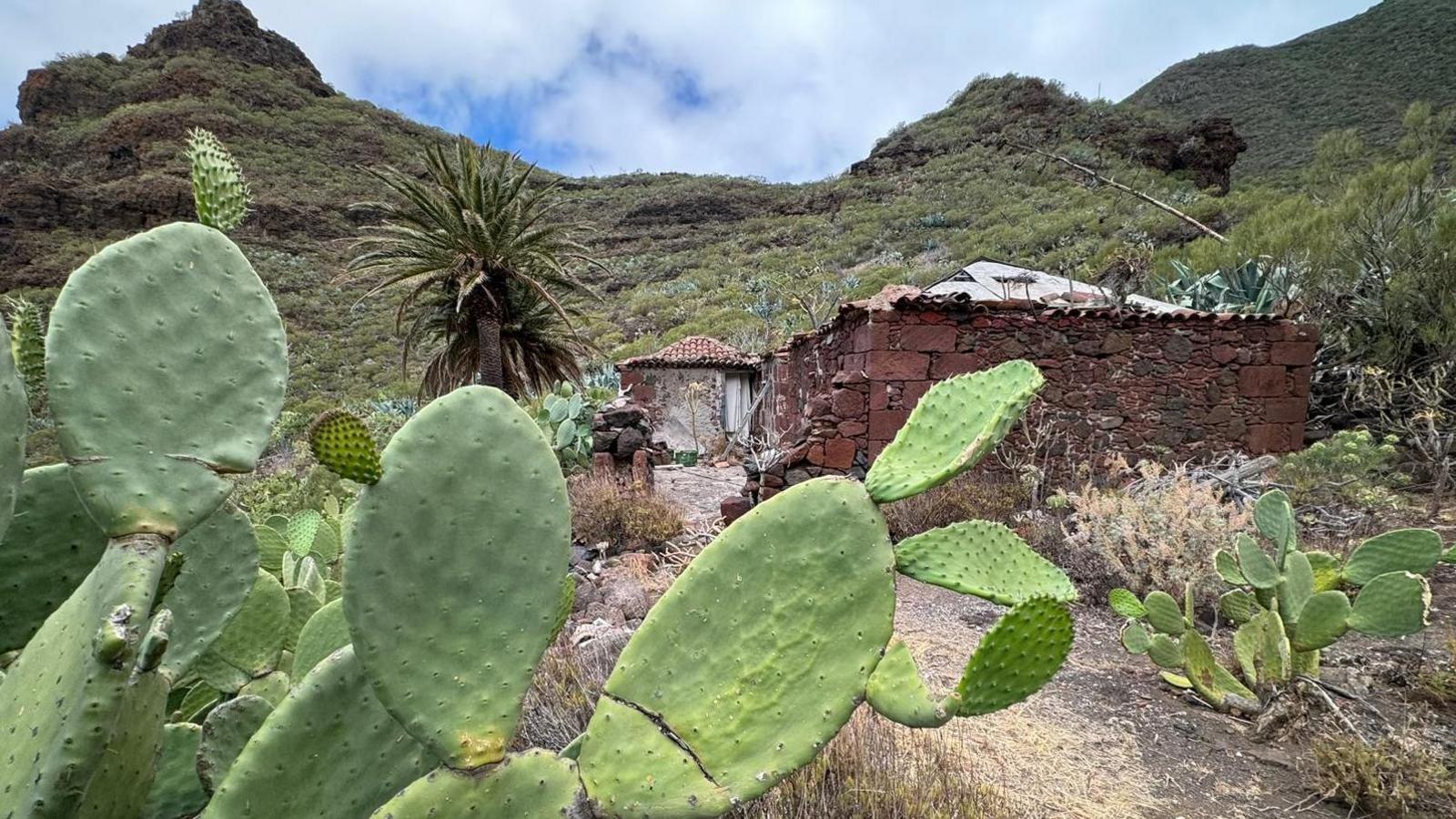
A set of dilapidated farm buildings drew the attention of search teams
The area being searched grew as time passed.
In the first few days after we arrived, the teams of firefighters, civil guards and mountain rescuers concentrated on the area closest to the house Jay had left on the morning of 17 June.
A team of a dozen council workers scoured the area of land below the outcrop of rock the cluster of small houses were built on.
When nothing was found, the search moved to the next valley, where Jay's phone last pinged.
At the bottom of the valley, partly hidden by dense undergrowth, lie a few dilapidated farm buildings.
Search dogs were deployed and officers carried out extensive work in the buildings.
Had Jay been there? Was there evidence that he might have come looking for something to drink?
For three or four days, police cars were parked up in the valley. The track to the buildings was closed off by the police and, as we left the area late one night, a patrol car with its headlights on stood guard.
It seemed as though this could be the breakthrough the police had been after.
But then, the next morning, the cars were gone, the track opened up and the search relocated elsewhere.
We trekked down to see why they’d spent so many days in this particular area and found a treasure trove of abandoned items in the wrecked rooms: an empty bottle of sun cream, boxes of tea bags, bottles of water, women's clothes on hangers, and an old mattress.
Each area had been checked for any sign of Jay having been there but with the police moving on to other search areas, it appears nothing in there was deemed to be important to the investigation.
Jay Slater’s disappearance has an effect on so many people, none more so than his mother and father, who have been in Tenerife since he went missing.
They have called in the support of friends and family to help them cope.
With every passing day, the worry can only be getting worse and that’s what has prompted so many people to donate money to help them. Jay’s mother Debbie Duncan said the funds had been used to help Tenerife’s mountain rescue teams as well as provide help for the family’s living costs on the island while they wait for news.
The concern was shared by others too. Taking part in the search was Livia Karczewski. The 40-year old mother lives in Tenerife and regularly walks in the area Jay was last seen in.
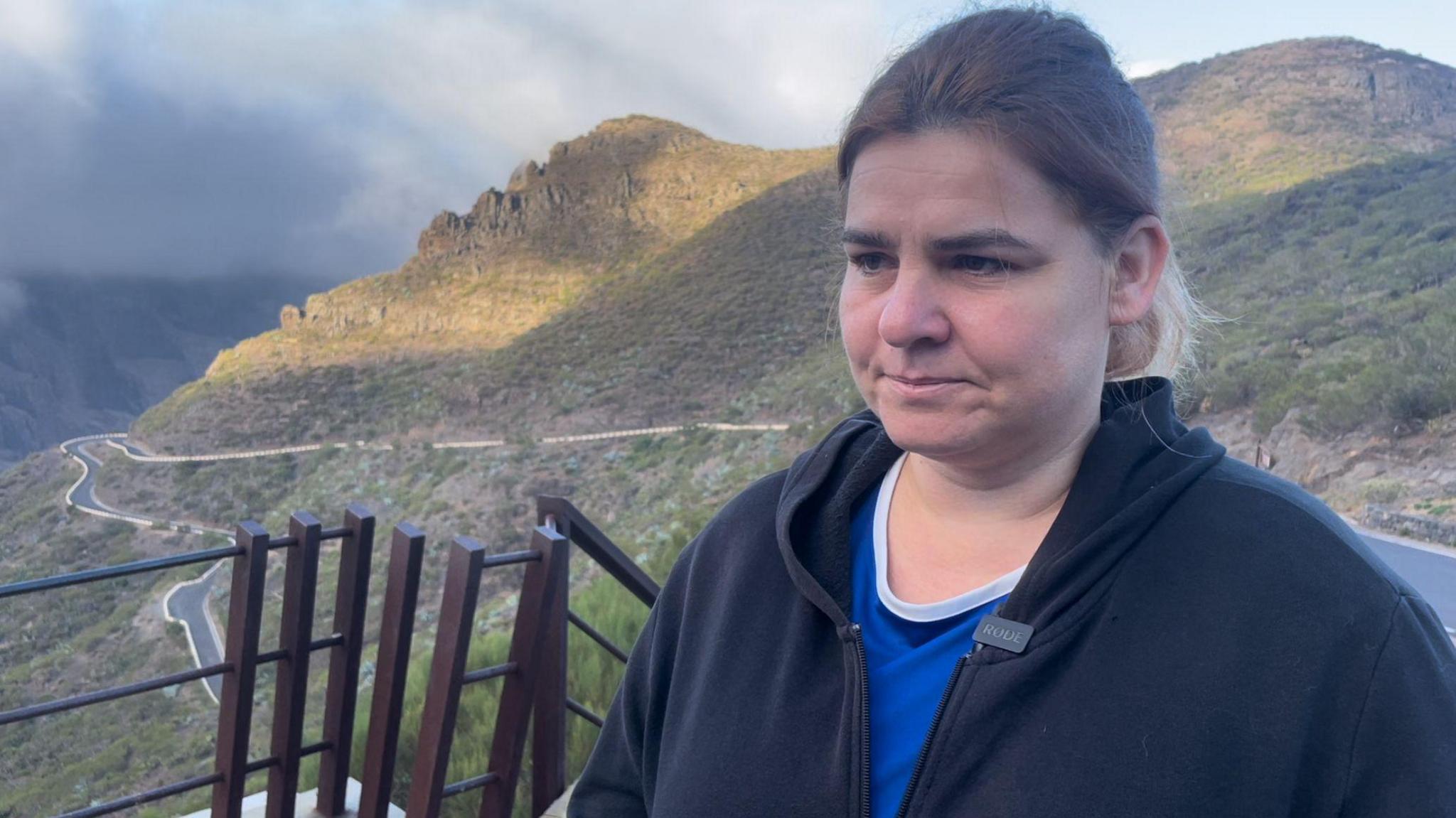
"Sometimes the ground is a little difficult around here," she says. "There are a lot of stones. You need good shoes, you need to be careful. It's not easy, you have to be prepared."
We ask her what made her come out here to join the search. Her answer was simple: “I wanted to come and be here because I have a son who’s the same age as Jay. I think if something was to happen to my boy, I’d appreciate it a lot if others helped to find him.”
As Saturday's search drew to a close, it was evident there had been no breakthrough. A helicopter flew back to its base, the drones were packed away and the search teams went home for the night.
The waiting for Jay Slater’s family continues.
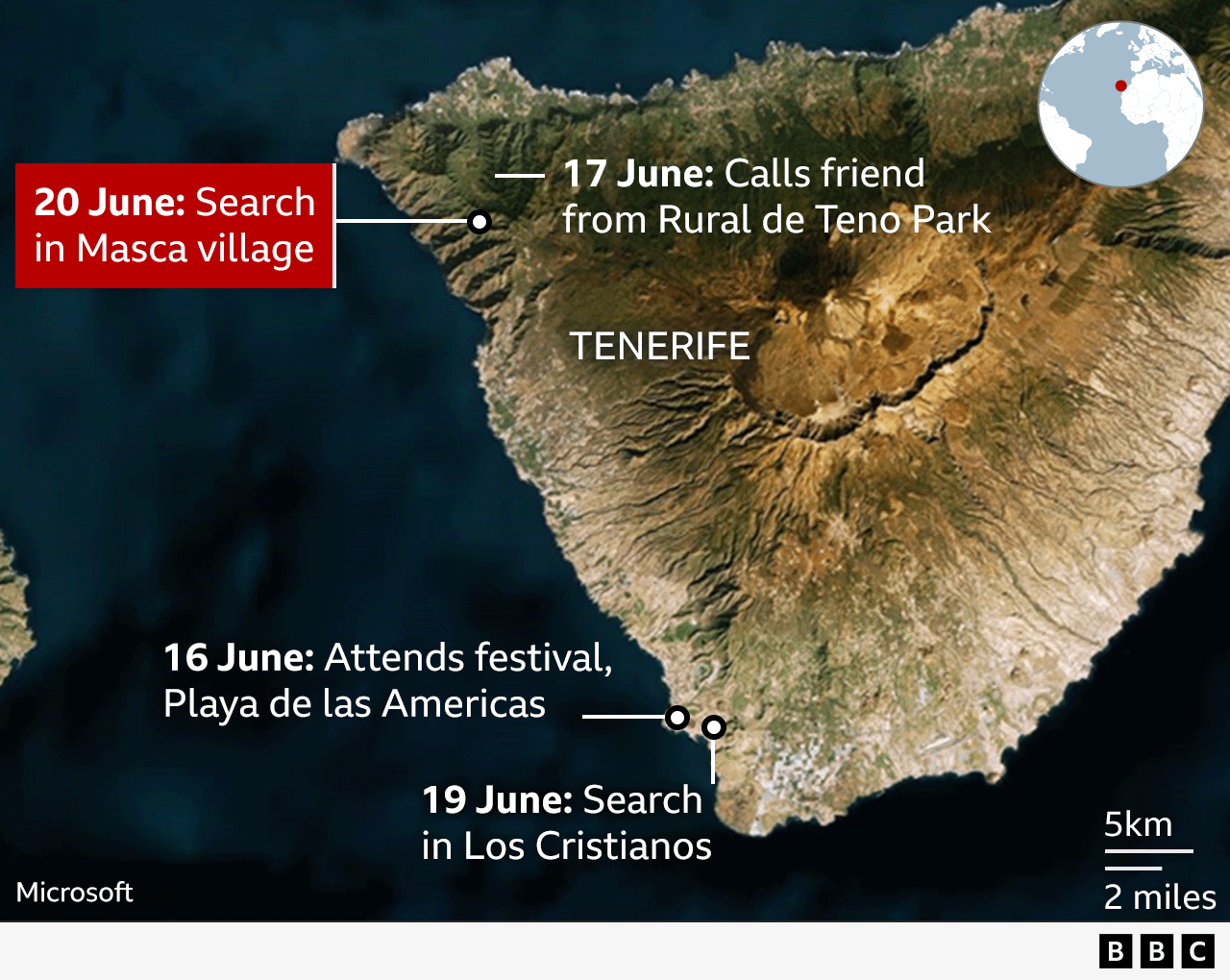
Related topics
- Published30 June 2024
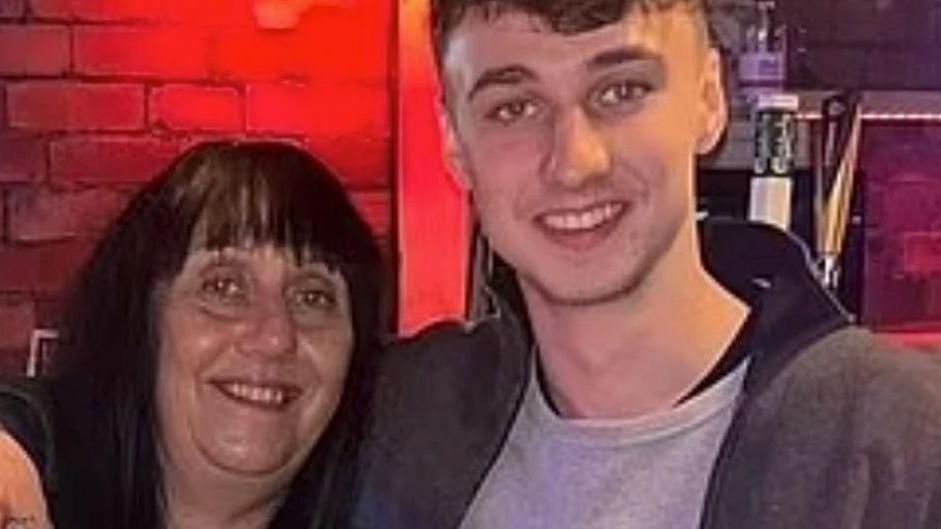
- Published29 June 2024
